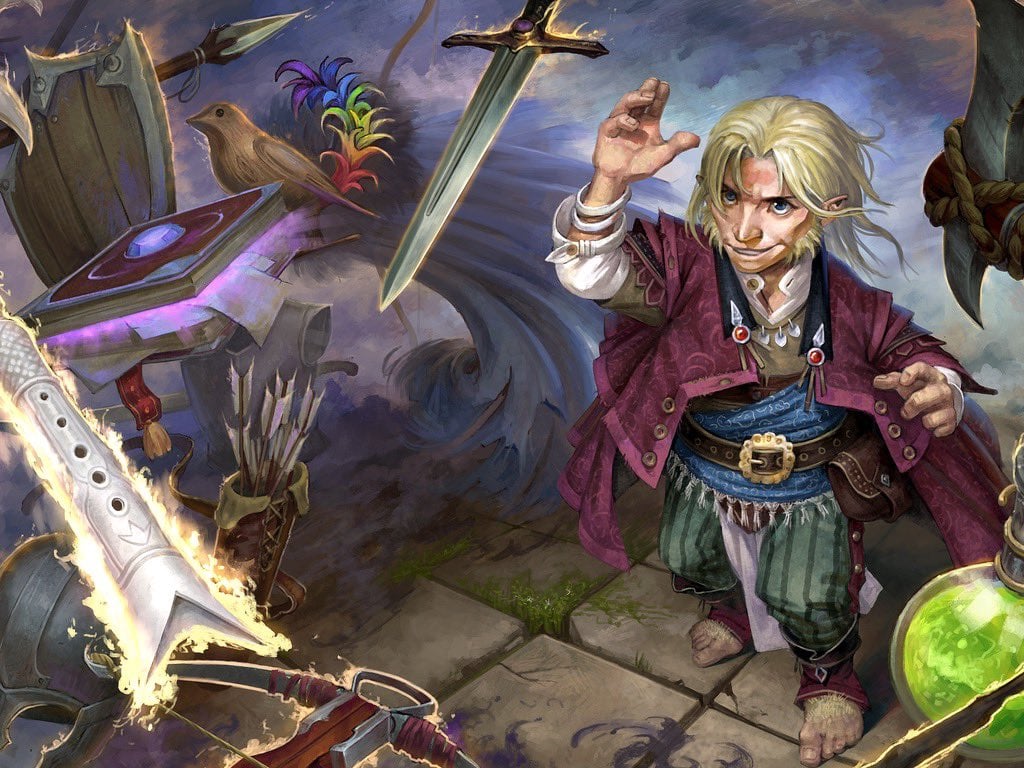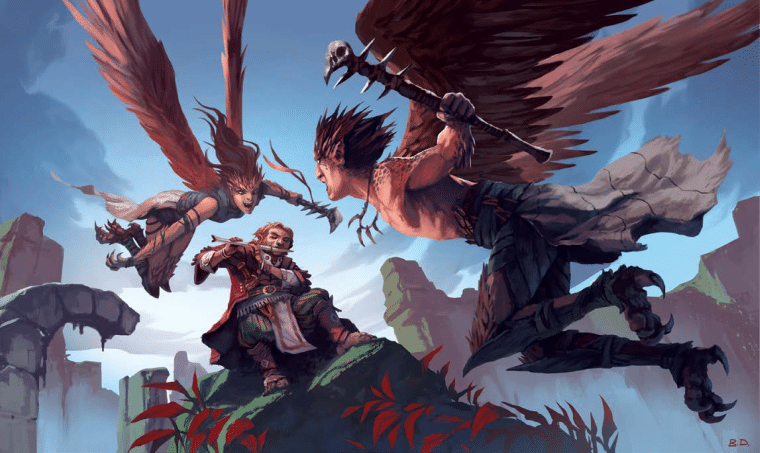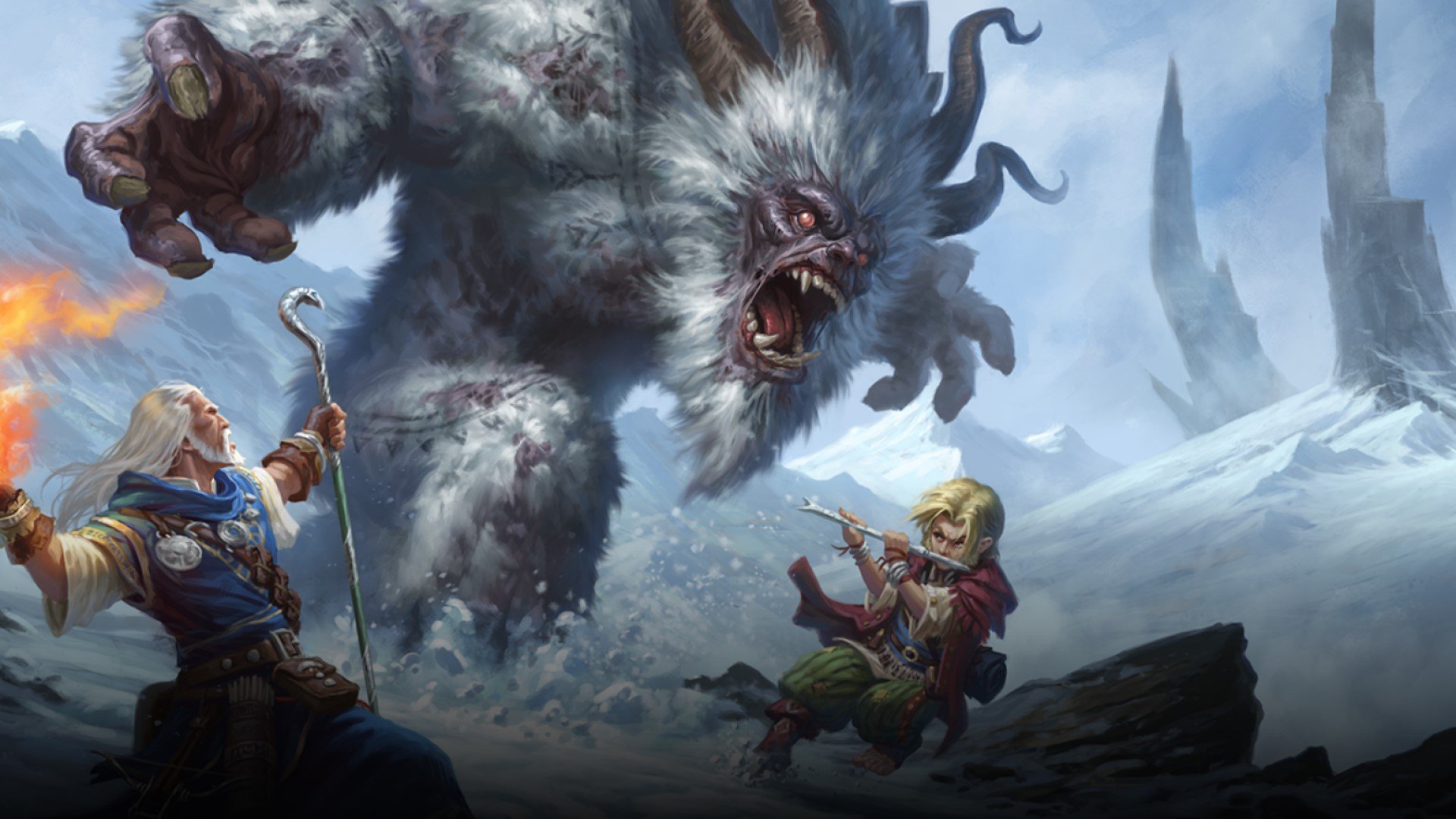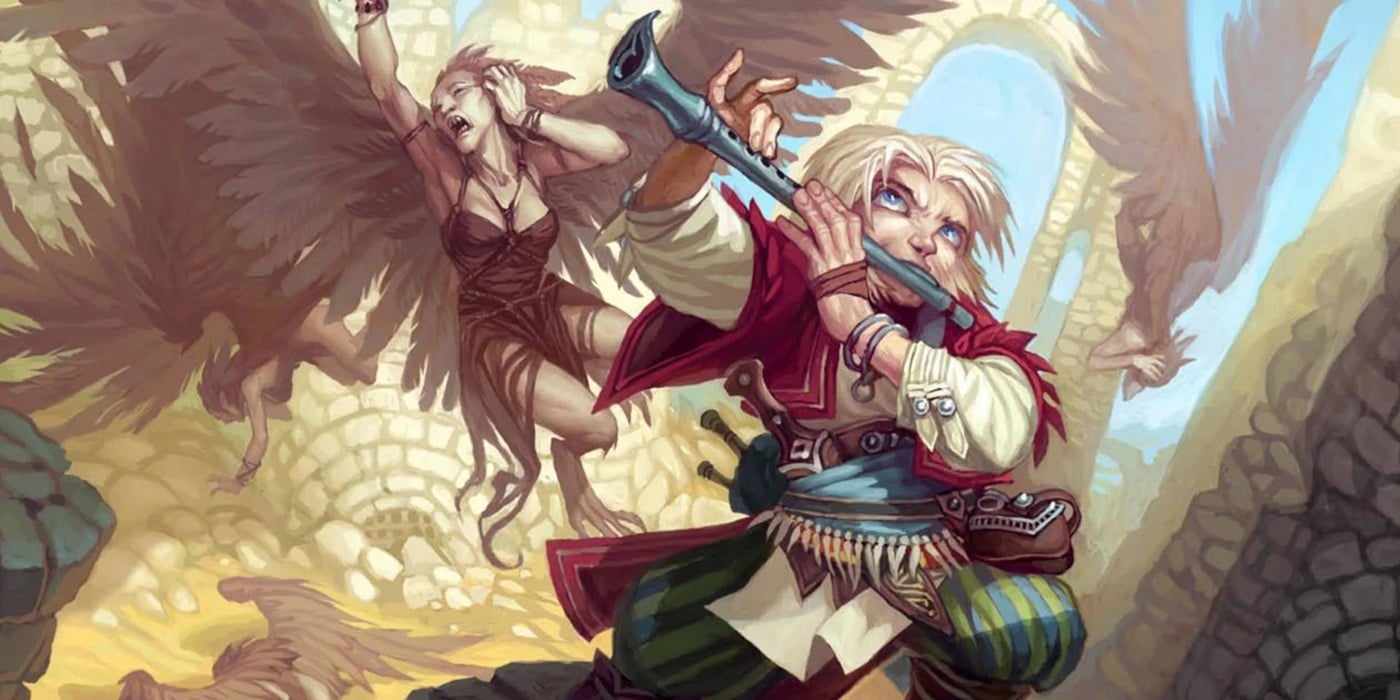Whether they’re singing of great deeds, causing a distraction, or creatively getting information, there’s always a use for a Pathfinder Bard.
Bards are known for being jack-of-all-trades, and one of the most multi-faceted character classes a party member can choose from. Natural entertainers, and likely the most charismatic member of your party, this the person you’ll want to put up-front to get your group into all of the best parties and in the know for all of the best jobs. Sure, they’re just as likely to talk their way out of—or into—trouble as they are to lob around a few powerful spells. But you’d never get bored picking a Pathfinder Bard to adventure with.
Jump to…
The Pathfinder Bard Basics
Like Bards in most RPGs, Pathfinder Bards are a heavily Charisma based class. It is their key attribute and at first level they get an attribute boost to their Charisma. Which makes sense, since much of a Bard’s job relates to impressing, entertaining, persuading, threatening, and otherwise distracting those around them. They have expert level proficiencies in Perception and Will, with training in a number of others, including Fortitude, Reflex, Occultism, and of course, Performance.
Bards also have access to spellcasting with access to spells of the occult tradition. Usually their spells are cast with music, clever limericks, or dance-like gestures. A Bard’s spell repertoire grows as they level up, from five cantrips and two first level spells, through a collection of thirty three spells at the character’s twentieth level. Bards can also use composition spells. This infuses their performance into their spells to create unique effects.
Muses
At level one, every Bard must chose a muse. This muse leads them to greatness. it may be a person, creature, supernatural entity, location, philosophy, deity, or even just a very interesting mystery. But their muse is the Bard’s inspiration for everything. And depending on the kind of inspiration they receive, their muse will grant different feats and spells to the character’s repertoire.
Enigma: This is for a Bard who’s muse is the drive to uncover hidden secrets and mysteries. An enigma driven Bard will likely support their team with hidden knowledge and create cryptic art. The feat they are given is Bardic Lore and the spell is Sure Strike
Maestro: These Bards strive to achieve greater and greater artistic prowess. They want to see themselves amongst the greatest artists of all time and assist their allies with inspiration. The feat they receive is Lingering Composition and the spell is Soothe.
Warrior: A warrior Bard thrives on the battlefield. They are inspired by and ready to inspire great warriors, and they can be seen regaling folks with tales of epic battles. They receive the Martial Performance feat and the spell Fear.
Polymath: This Bard is a true jack-of-all-trades. Their preferred skills and philosophies may change, and they are never at a loss for new things to learn. These Bards want to try a little bit of everything and can bring some of anything to their group’s dynamic. The feat they get is Versatile Performance and the spell is Phantasmal Minion.
Multifarious Muse: For a Pathfinder Bard that doesn’t fall into any single category, the second-level feat Multifarious Muse will allow them to choose another Muse-type and gain that feat as well.
Multiclassing a Pathfinder Bard
A non-Bard adventurer who has been called to dabble in occult lore by a muse may be inspired to multiclass as a Pathfinder Bard. They are granted knowledge and ways to inspire and support their fellow adventurers. Both from the thick of battle, and from a distance. Because Bards – even those who multiclassed in- are nothing if not versatile.
Additional feats that become available through this include Bard Dedication, Basic, Expert, and Master Bard Spellcasting, Basic and Advanced Muse’s Whispers, Occult Breadth, and Anthemic Performance.
Tools of the Trade
Right out the gate, Bards have training in simple and martial weapons. So your clubs, daggers, spears and staffs, as well as various swords, hammers, axes, and whips, to name a few. But many Bards will also carry some sort of instrument with them as well. Lutes or flues are common, but this is a game of creative storytelling, and I’m not about to limit your character’s instrument choice. Plus, some Pathfinder Bards may use their voices or even perform physically, for example, dancers.
How to Play a Pathfinder Bard
Bards are one of the most classic and most popular adventuring classes. They are ideal for a player who wants to wear a lot of hats. And of course, they’re for an adventurer who always wants to have a wide variety of options at the table. A Pathfinder Bard may provide information or inspiration, they may get right into the heart of the battle, or they may take a more ranged approach with their magic.
This also makes them a slightly less straightforward character to play. While I wouldn’t call Bards a difficult class to take on, a newcomer to Pathfinder, or RPGs in general, may have an easier time with a class who’s job in the party switches up a bit less.
Bard is a focused on flexibility and versatility. If there’s a hole in your party’s composition or specific need in any given fight, the Bard will usually have a few special skills to keep everything well rounded. While their focus will be on their social skills—performance, persuasion, storytelling, etc.— Pathfinder Bards will generally collect a wide variety of abilities. They may be jack-of-all-trades, but that doesn’t mean that they haven’t mastered their art.
Happy adventuring!
Subscribe to our newsletter!
Get Tabletop, RPG & Pop Culture news delivered directly to your inbox.
Don’t Miss:
Read more at this site




